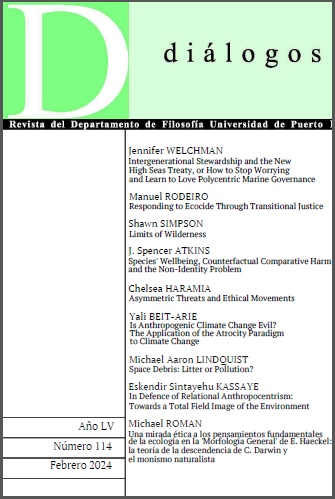Résumé
Recently a new High Seas Treaty (officially titled an Agreement under the United Nations Convention on the Law of the Sea on the Conservation and Sustainable Use of Marine Biological Diversity of Areas beyond National Jurisdiction) was adopted by the United Nations General Assembly in June 2023, after nearly twenty years of what have been described as “The most important talks no one has heard of.” If ratified, it would offer important new tools for marine conservation. Yet little notice has been taken either of the negotiations or their conclusion in the environmental ethics literature, especially in North America. I discuss possible reasons why the High Seas treaty has garnered so little attention from environmental philosophers. I then go on to illustrate the gaps in current polycentric marine governance regimes with the plight of the American Eel. After discussing a mechanism the High Seas Treaty provides that would permit protection of the eels’ spawning grounds in the Sargasso Sea, I will go the objection that the High Seas Treaty does too little to unify our current polycentric nature of ocean governance and thus too little to ensure just and equitable marine stewardship. I will argue that on Jonathan Wolf’s ‘layers of justice’ approach to norms of international cooperation, it need not be. Assuming the High Seas Treaty is ratified, we could stop worrying and learn to love (or at least live with) polycentric marine governance.

Ce travail est disponible sous licence Creative Commons Attribution - Pas d’Utilisation Commerciale 4.0 International.

